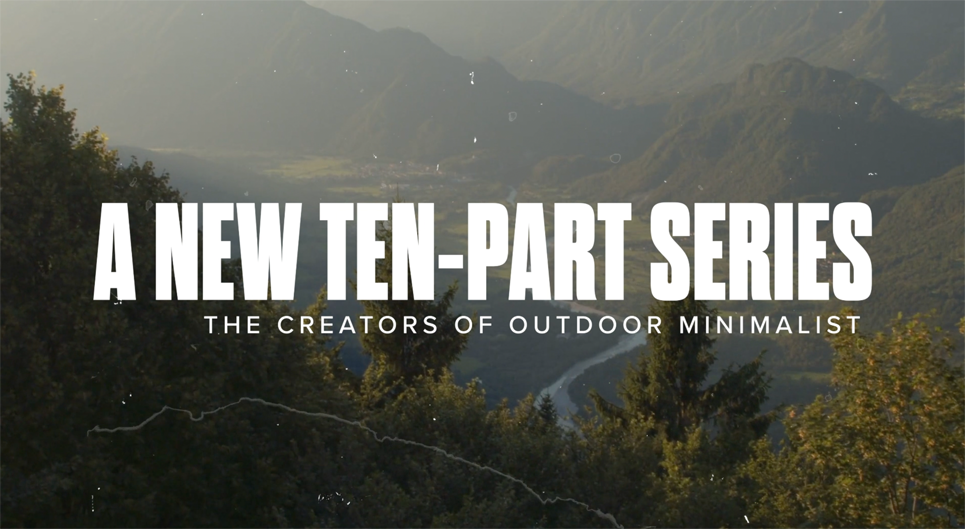New Podcast Series, Forever Chemicals, Available Today Wherever You Get Your PodcastsFrom Outdoor Minimalist, the new series explores the rise, risks and phase out of PFAS in our everyday lives.
March 4, 2024

From Outdoor Minimalist, the new series explores the rise, risks and phase out of PFAS in our everyday lives.
[Wenachee, WA—March 4, 2024] /OUTDOOR SPORTSWIRE/ – Today, the creators of the Outdoor Minimalist book and podcast have launched a comprehensive ten-part podcast series, Forever Chemicals, exploring PFAS; what they are, why they’re dangerous, and how we can move forward without them. Meg Carney, Outdoor Minimalist host and co-founder, sits down with experts from a broad range of backgrounds—scientists, product designers, materials suppliers, remediation specialists, lawyers, and advocacy groups to provide listeners with an in-depth view of PFAS and their use in consumer goods and apparel. Please click here to see the trailer.
“Going into the production of the Forever Chemicals podcast, I knew of the dangers PFAS posed, but I didn’t quite grasp how pervasive they were and how far behind the outdoor industry was to science,” said Carney. “After talking with brands across the globe, PFAS regulation advocates, and scientists pushing for industrial changes, the unfortunate truth is that, as an industry, we acted too late.
While the outdoor industry may be behind in regard to phasing out PFAS, we are moving in the right direction. There’s positive collaboration and innovation happening in the industry. I hope we can use PFAS as a cautionary tale to listen to science and move faster when dealing with other harmful chemicals, such as solvents and antimicrobials.”
From the podcast:
“Changing things has gotten so much harder. In those days, we determined that the flame retardant [brominated tris] that was 5-10% of the weight of all kids’ pajamas in the ‘70s was a mutagen; it changed DNA. We showed that it got into the children, and it was banned from use three months later. Nowadays, it can be years of struggling because the chemical industry really fights back. I would say it took the outdoor industry a really long time to recognize that PFAS was a problem. I don’t think they recognized it until California banned PFAS in textiles. Then they recognized it because they had to,” said Dr. Arlene Blum, Green Science Policy Institute.
“It all starts with the health impact. The US EPA has done some detailed work with several research universities, and they’ve put preliminary drinking water goals out there. Which means, they’re cleanup goals. In other words, what is the limit that we can have within our water and still have a fairly low risk of being impacted by toxic carcinogenic compounds? While they’re not finalized, and that’s one of the issues here…what they’re looking at is around four parts per trillion as a cleanup standard. That’s extremely low. Again, why is it so low? It comes back to bioaccumulation. If you drink the water from when you’re a little child to an older person, from the same house that’s being impacted at a low level, even a small, small amount will impact you over time because of that bioaccumulation and the fact that there’s no biological destruction of the chemical. In order to destroy it, it takes extreme conditions,” said Scott Wilson, remediation specialist with Regenesis.
To listen to the Forever Chemicals podcast, please visit https://podcasts.apple.com/us/podcast/forever-chemicals/id1724693010 or tune in wherever you get your podcasts.
About Outdoor Minimalist and Black Footed Ferret Productions
Meg Carney is an outdoor and environmental writer turned podcaster. Shortly after writing her first book, Outdoor Minimalist: Waste Less Hiking, Camping, and Backpacking, she released the Outdoor Minimalist podcast, which has aired over 100 episodes. With various experts, Meg raises awareness through conversation, information, and mindfulness of some of the most important environmental issues of our time.
For media inquiries, please contact Kate Ketschek, Kate@revolutionhousemedia.com. If you’d like to support this independent, unbiased podcast, please visit the Forever Chemicals GoFundMe page.
###





